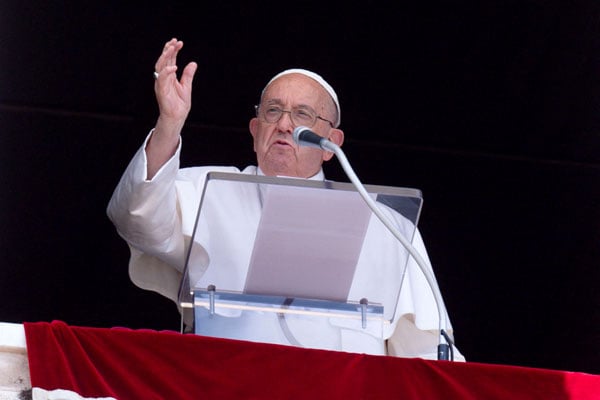Prime
3,000 Uganda-bound trucks stuck at border

Trucks wait in a queue to be cleared to enter Uganda at Malaba, near Uganda on April 29. Kenya has run out of testing kits and reagents for Coronavirus leaving more than 3, 000 trucks struck at the border. PHOTO/FILE
What you need to know:
- The drivers are unanimously demanding that Kampala lowers the cost of testing for Covid-19 or totally waive the cost so that tests are free like before.
- Mr Isa Mulumba, a driver is calling upon governments to review the bilateral agreement on Covid-19 to have drivers test once a month because testing after every 14 days is costly.
Kenya has run out of testing kits, leaving more than 3,000 trucks destined for Uganda and other countries in the Great Lakes region stuck.
By yesterday morning, the queue at Malaba was stretching more than 70 kilometres, nearing Bugoma while in Busia-Kenya, on the Kisumu-Busia highway, the queue was nearly 30 kilometres, past Mundika Town.
Mr Stanley Karanja, a truck driver in Busia-Kenya, said he took a Covid-19 test last month but he was yet to receive the results.
“I tested for Covid-19 in Kenya on September 25, but up to now, my certificate is yet to come,” he said.
Mr Karanja, who said he arrived at Mundika Town, located about 15 kilometres from the Busia border last Friday, added that he was disappointed to still be held in the traffic gridlock due to delay of his results.
“This snarl up is causing drivers problems as some of our colleagues are falling sick inside their trucks and on Sunday, one of us died in the cabin of his truck near Webuye,” he said.
Kenya, Rwanda and Uganda made an agreement to allow only drivers with negative coronavirus certificates to cross the borders, a move aimed at combating the spread of coronavirus.
Uganda was testing all truck drivers until August when the Ministry of Health slapped fees of $65 (about Shs240, 000), forcing the drivers to revert to testing in Kenya.
Kenya, which was offering free testing, has since run out of testing kits and reagents and has accordingly neither been carrying out tests nor releasing results for the past week.
Mr James Malinz, the manager of Customs in Eastern region, said the queue, especially between Bungoma and Malaba border, was stretching several kilometres into Kenya.
“The jam is too much because it is past Webuye and close to Bugoma,” he said.
The long queues threaten to crowd the usually busy northern corridor route and delay the movement of imports along the main business artery from the coast of Mombasa to the Great Lakes region.
Malaba handles most of the cargo trucks coming into the region from Mombasa, while the fuel supplies come through the Busia border.
Mr Malinz said there are also concerns that raw materials such as clinka, used in the manufacture of cement, are stuck in Kenya.
Maganjo Millers, the processors and importers of chicken and animal feeds, are equally affected as their raw materials continue to be held up.
Mr Malinz said he has been meeting several manufacturers, who are complaining of the high cost of importing raw materials.
He added that such delays were increasing the cost of doing business on the side of the importers because transporters are hiking the transport costs.
On average, Malaba border point registers between 1,200 and 1,300 trucks a day, but because of the jam in Kenya, the numbers have dropped to less than 700 trucks since last week.
Mr Isa Mulumba, a driver, said he resorted to testing in Kenya because they could not afford the money the Ministry of Health was demanding.
“The money which was being asked for by the Ministry of Health for testing was too much,” Mr Mulumba said.
Mr Fred Oyago, another truck driver, said he had run out of money to buy basics, especially food as the money he was given is budgeted for the days spent on the route.
Mr Ronnie Ikinyum, a clearing agent at the Busia border, said whereas they had processed papers and were ready to dispatch trucks, few were arriving from Kenya.
“I was supposed to clear five trucks on Monday but only one arrived at the border; so I have to wait for more hours and days to receive the remaining trucks,” Mr Ikinyum said, adding that since the weekend, importers were putting him under immense pressure.




